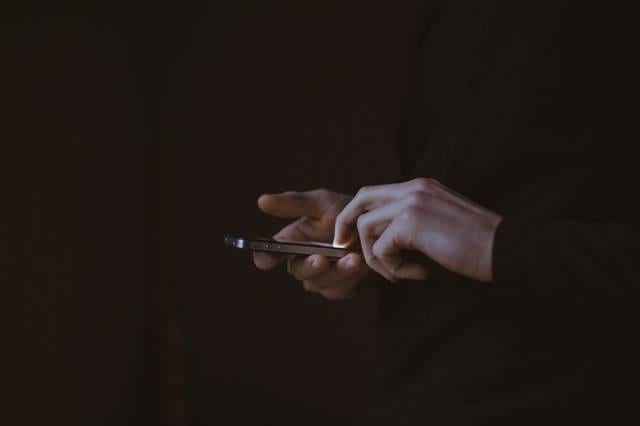Smartphones are wonderfully handy devices that make daily activities easier. They have gone beyond simple tools for communication, and have now become essential in so many aspects of life – from work to entertainment.
These devices are not without risks, however, so all smartphone users need to be aware of the various security issues that may crop up. More important, it is crucial to learn how to protect oneself from these safety concerns.
Phone Virus / Malware / Spyware
These are malicious programs that can blindside you and do a lot of damage. They may pose as innocent applications, but once installed, they can lead to your personal emails, photos, and other files falling into the wrong hands. Viruses can also infect other apps and replicate themselves in the most devious ways, which will make it difficult for you to get rid of them.
Possible malware sources include fake emails, infected email attachments, suspicious download links, other apps that are difficult to verify, untrustworthy installers, annoying pop-up advertisements, and mysterious zipped files.
How to Protect Yourself
First and foremost, make sure you avoid all of the possible virus sources detailed above. When you open emails, for example, only click on attachments or links sent by people you know. Be careful about downloading other programs, as well. If you are plagued by pop-ups or other curiosity-inducing files, resist the temptation to click and open them.
It is also highly advisable that you install a reliable antivirus software for your smartphone to boost your security. Most of the time, they come with battery boosters and app management features to make them worth your while. Once you have an antivirus app installed, ensure that you scan your device for harmful files regularly.
Unauthorized Access by Acquaintances and Strangers
Sometimes, we become too busy with other things and leave our phones unattended. What if you are at a party and your friends decide to prank you by accessing your social media accounts via your phone, and then post embarrassing photos? Or, what if you left your device lying around in your office but someone decided to snoop around to obtain personal details that they can use against you?
How to Protect Yourself
These situations might sound farfetched at the moment, but better safe the sorry. So, we recommend that you make full use of screen-and-app-locks. These will let you protect the contents of your smartphone with a pin code, a password, or a pattern lock. Whichever you choose, you will enjoy improved protection.
It is also advisable to utilize secret folders for truly sensitive files. Alternatively, make it a habit not to save delicate information in your phone as much as possible.
Theft
People with sticky fingers exist around the world and they are just waiting for opportunities to nab your mobile device. And you really don’t want to lose your phone while partying at a club or while traveling on a holiday, do you?
How to Protect Yourself
Since buying a smartphone is a considerable investment, it just makes sense that you prevent it from being stolen. You can install an anti-theft lock which will allow you to trace the location of your device, just in case you are separated from it. This tracer will also be handy if you just misplaced or forgot your phone somewhere.
Activate SIM protection as well. In the event that someone tries to replace your SIM card with another, there are programs that will prohibit that by locking the phone and making it unusable. Some will even utilize the camera to take pictures of whoever stole your device. You can then be informed via email about the whereabouts of your gadget, increasing your chances of recovering it.
Phishing
Phishing is the act of conning you to give up personal information linked to your emails, mobile bank accounts, and other services that should be kept private. Most likely, you will receive an email or notification saying you need to access your account in order to correct some mistakes. Phishers will use all kinds of trickery just so they can get hold of your passwords.
How to Protect Yourself
Make sure that you only access secure websites or apps on your phone. Look for the https:// on websites or check for encryptions. When installing new apps, do so only when you are sure they come from trusted developers. Try not to leave images of your bank account details on your phone as well.
The moment you suspect you have been a victim of phishing, change the passwords of affected accounts right away. If your mobile bank account has been breached, best to report the situation to your banker immediately.
Hacking via Wi-Fi or GPS
Public Wi-Fi connections can increase your vulnerability. Hackers and virus makers can sneak in their harmful programs through these connections. Or, you might be exposed to an evil twin attack, in which you will see a legitimate-looking Wi-Fi connection, but is a hoax in reality. You might then inadvertently download a Trojan virus or you can be victimized by a phishing app or web page.
GPS meanwhile can subject you to stalking. Someone you really don’t want following you can easily track you through those GPS tags on your photos and social media posts.
How to Protect Yourself
Refrain from connecting to unencrypted public Wi-Fi. If you must, just be careful of pop-up pages that ask you to access your personal accounts. Alternatively, make use of a VPN network. As for your GPS, be careful when you tag your location. If you really want to, upload GPS-tagged photos and posts only after you have left the place.
Other Security Tips
Be vigilant of any application you install. Read app store reviews before downloading anything. Aside from these, it is best to have multiple layers of protection. Combine firewalls, antivirus software, screen locks, and app locks to strengthen your device’s security.
It is also advisable to regularly back up any important data. Just in case your phone is hacked or stolen, you will still have access to important files. You can back things up externally, on another device or on your computer. Or, you can take advantage of cloud backup systems. Of course, implementing protective measures for your backups is necessary as well.
All in all, smartphones are very useful gadgets that most of us can’t live without. This is why it becomes all the more important to take our device’s security seriously. Be guided by the above tips to improve your peace of mind.


